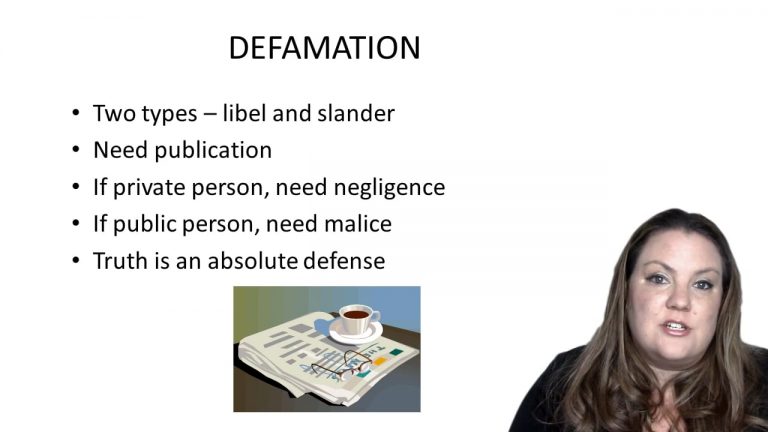SmartBrief
Confirm favorite deletion?
Torts Keyed to Underwood
Lester v. Powers
Citation:
596 A.2d 65 (Me. 1991)Facts
The defendant took a psychology course that was lectured by the plaintiff. One day, the plaintiff decided to have a class talk about homosexuality and the appropriateness of classifying homosexuality as a disorder when the person is unhappy about his or her sexual orientation. The defendant, who was lesbian, thought that the plaintiff handled the subject inappropriately. Later on, the plaintiff was under tenure review. As part of the tenure review process, the school accepted solicited letters from former students. The defendant did not respond to this invitation to comment before the deadline. However, the defendant later contacted the Dean of the Faculty and asked if it was too late to comment. The Dean invited her to do so. The defendant then wrote a letter criticizing the plaintiff. The letter read as follows: “I know that a student should not ever be made to feel uncomfortable or intimidated in her/his learning on account of gender or sexual orientation, and I sadly feel this was definitely the case for me. I also know of others who still feel intimidated, much as I have and for the same reasons, and who have not written to add their input to this decision; I thank this Committee for the opportunity to express my (and their) opinion that Professor Lews Lester should not be tenured.” After receiving the letter, the university decided to deny tenure to the plaintiff.
Only StudyBuddy Pro offers the complete Case Brief Anatomy*
Access the most important case brief elements for optimal case understanding.
*Case Brief Anatomy includes: Brief Prologue, Complete Case Brief, Brief Epilogue
- The Brief Prologue provides necessary case brief introductory information and includes:
Topic:
Identifies the topic of law and where this case fits within your course outline.Parties:
Identifies the cast of characters involved in the case.Procedural Posture & History:
Shares the case history with how lower courts have ruled on the matter.Case Key Terms, Acts, Doctrines, etc.:
A case specific Legal Term Dictionary.Case Doctrines, Acts, Statutes, Amendments and Treatises:
Identifies and Defines Legal Authority used in this case.
- The Case Brief is the complete case summarized and authored in the traditional Law School I.R.A.C. format. The Pro case brief includes:
Brief Facts:
A Synopsis of the Facts of the case.Rule of Law:
Identifies the Legal Principle the Court used in deciding the case.Facts:
What are the factual circumstances that gave rise to the civil or criminal case? What is the relationship of the Parties that are involved in the case.Issue(s):
Lists the Questions of Law that are raised by the Facts of the case.Holding:
Shares the Court's answer to the legal questions raised in the issue.Concurring / Dissenting Opinions:
Includes valuable concurring or dissenting opinions and their key points.Reasoning and Analysis:
Identifies the chain of argument(s) which led the judges to rule as they did.
- The Brief Prologue closes the case brief with important forward-looking discussion and includes:
Policy:
Identifies the Policy if any that has been established by the case.Court Direction:
Shares where the Court went from here for this case.
Topic Resources
Topic Outline
Topic Refresher Course

 11m 49s
11m 49s